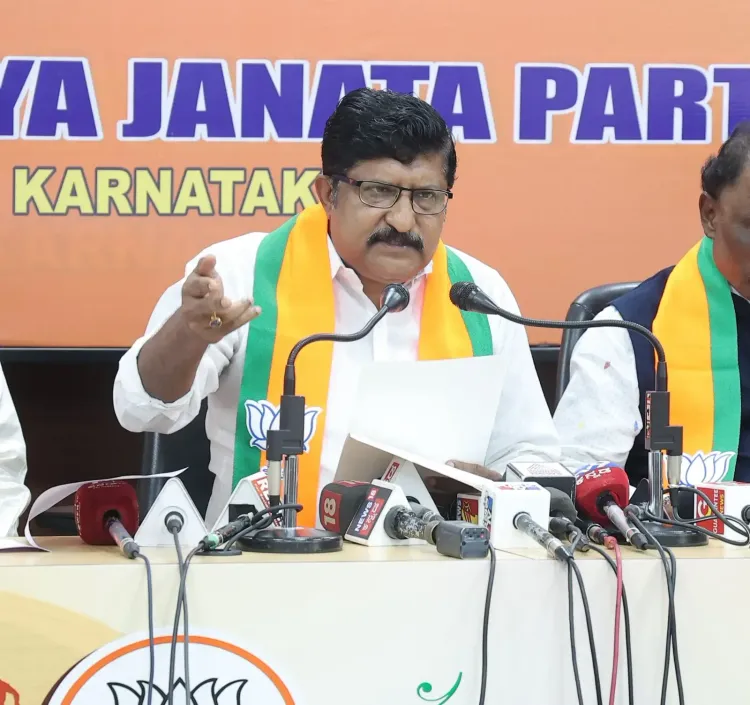Is the K'taka Government Delving into Caste Within Religion?

Synopsis
Key Takeaways
- Karnataka government accused of defining castes within religions.
- Allegations of fabricating non-existent castes.
- Calls for a thorough ethnographic study on Christians.
- Concerns over divisions within the Christian community.
- Importance of evaluating caste categorization methods.
Bengaluru, Sep 6 (NationPress) The Karnataka government is reportedly trying to identify castes within religions, with accusations from Anil Thomas, the State President of the BJP Minority Morcha, that they are even fabricating castes that don’t exist. This claim was made during a press conference held at the BJP state office, Jagannath Bhavan in Bengaluru.
He asserted that reports from the administration led by Kantharaju (2014–15) and Hegde were discarded by the former Siddaramaiah government. “That administration implemented a divisive policy by listing 44 sub-castes within the Christian community, a number that has now escalated to 52,” he pointed out.
“Christianity does not have castes. Chief Minister Siddaramaiah’s government included leaders such as K.J. George, Ivan D’Souza, J.R. Lobo, and Prof. Jaffed. Have they lost their senses? Don’t they realize that the caste system is non-existent in Christianity?” he questioned.
He further alleged, “By categorizing Christians as Kuruba Christians, Brahmin Christians, Vokkaliga Christians, Idiga Christians, and others, the Congress government is imposing caste divisions within Christianity, violating the Constitution to foster discord. Such a government deserves to be condemned.”
According to the 2011 Census, the Christian population in Karnataka was approximately 11.44 lakh.
This community includes various denominations such as Roman Catholics, Syrian Christians, Orthodox Church, Church of South India, Church of North India, and numerous smaller Pentecostal churches.
“However, when you ask ordinary individuals, they simply identify as Catholic or Protestant. These are denominations, not castes. The government should be urged to conduct an ethnographic study,” Thomas insisted.
He called for a thorough ethnographic examination of Christians in the state, akin to the benefits Muslims received from the Sachar Committee report.
Former Chairman of the Christian Development Board Shantakumar Kennedy, along with Morcha office bearers Dr. Thomas, S.N. Raju, Shyam, Sylvester Stalin, and others were present during the press conference.










